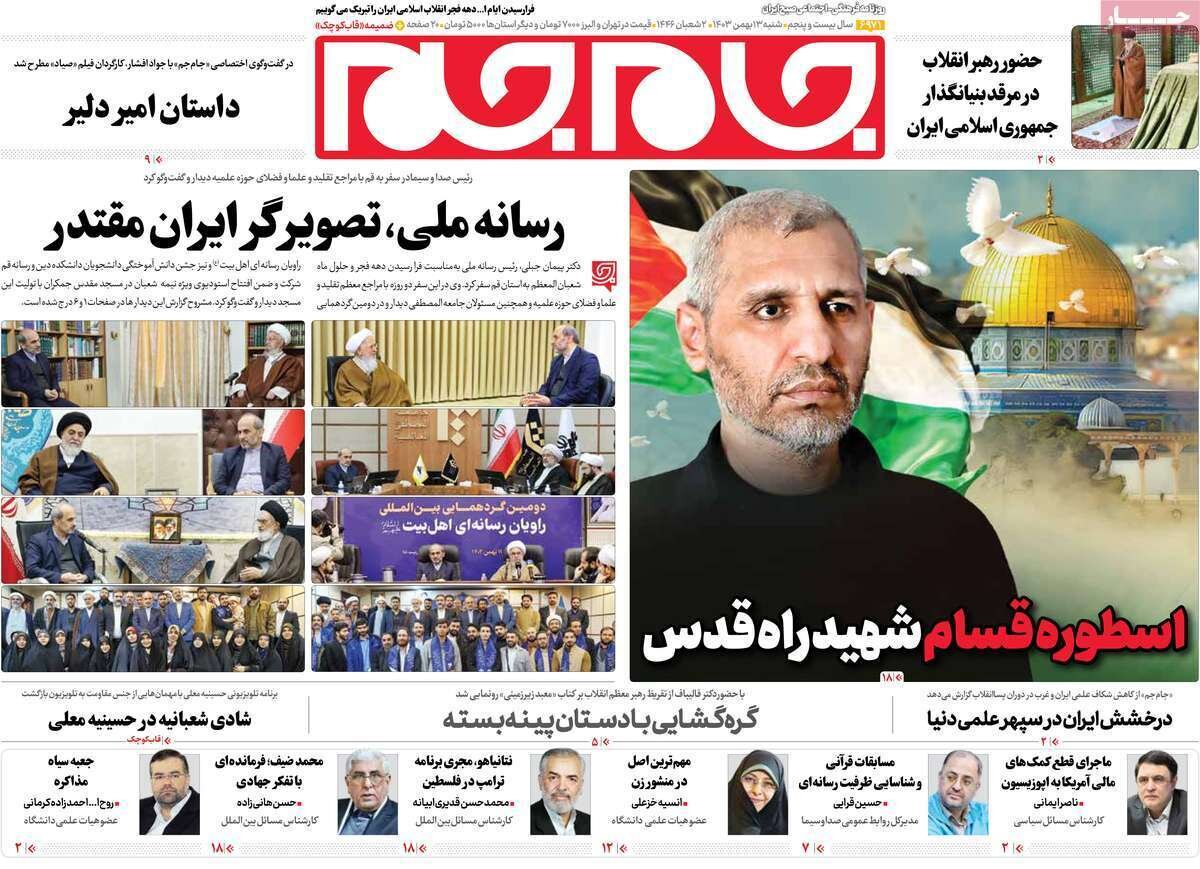Trump’s purpose in cutting off financial aid to the opposition

TEHRAN - In a commentary, Jam-e-Jam dealt with the Trump administration’s purpose in cutting off financial aid to the foreign-based Iranian opposition groups and wrote: From the point of view of the U.S. administration, this action is assessed in line with economic reforms and cost reduction.
Another noteworthy point is the new U.S. administration's efforts to find some kind of compromise with the Iranian government. These efforts do not necessarily mean negotiations, establishing relations, or official communications, but rather seeking to find a common ground to reduce tensions. For this purpose, the U.S. government, in adopting this approach, should send signals. One of these signals can be the reduction of financial aid to groups hostile to the Islamic Republic of Iran. Although this does not mean a complete normalization of relations, it could be a step towards reducing tension between the two countries and creating a platform for compromise on some issues. Also, this action by the U.S. government could be the result of assessing the irrelevance of the groups opposed to the Islamic Republic of Iran. At the current time that the Europeans are also negotiating with Iran, they may not accept the risk of increasing aid to these groups. And if they provide any assistance, it will be in secret and not as much as the aid from the United States.
Arman-e-Emrooz: Possibility of agreement with Washington likelier than not
In an analysis, Arman-e-Emrooz argued the countdown for negotiations between Iran and the United States on different issues has started. It wrote: The agenda of the negotiations is that some want to put all the disputed files on the negotiating table and reach a comprehensive agreement. Possible talks will begin with the nuclear dispute as the centerpiece. However, the American side would likely raise other issues, such as regional issues and the (Iranian) missile program. Regarding the region, it is not unlikely that understandings would be formed on the sidelines of a possible nuclear agreement between the two sides. Regarding the missile program, Iran will likely promise not to increase their range without negotiating the program itself. For now, we must wait for the negotiations to begin. Of course, it is too early to predict the outcome; but the possibility of an agreement in the end is greater than no agreement. If an agreement is reached, Iran must prepare itself for Trump's controversial statements. If no agreement is reached, we should see what unprecedented level of tension will arise.
Arman-e-Melli: Iran has shown neither enthusiasm nor indifference to U.S.
Arman-e-Melli discussed Trump's position on Iran in an interview with Sabah Zangeneh, an expert on international relations. He said: America has not treated Iran well throughout history. But America cannot ignore Iran with a brilliant history of civilization and an active and diligent nation, as well as a country with abundant capacities and opportunities. Given these realities, it needs to adopt another method in its relations with Iran. Iran has shown neither enthusiasm nor indifference in its relations with the United States. Iran also needs a reasonable, logical, and responsible approach in its relations with all countries in the world and does not prefer any relations with any country in the world at the cost of another. All countries, whether Eastern or Western, each have their specific conditions. If Iran holds talks with the U.S. based on its national interests, it will not rule out talks with China, Russia, and other countries. Each of these countries has its capabilities and capacities, and Iran also has its capacities, and therefore it is desirable to establish balanced relations with all of these countries.
Hamshahri: British Parliament report on Iran’s power in regional equations
In an article, Hamshahri discussed the British Parliament’s report on Iranian power. The paper said: The report states that Iran, despite Western sanctions and recent developments in the region, is still an influential power in the Middle East equations, and its relations with key countries in the world are expanding. While Western analysts are trying to talk about the challenges facing the Axis of Resistance, the truth shows that Iran, despite widespread pressure, is still a key player in many regional and international cases. They admit that despite military and economic pressure, the structures of the resistance groups have not collapsed. This means that the West’s efforts to limit Iran’s power in the Middle East have been ineffective. Despite sanctions from the U.S. and its allies, Iran has managed to advance its nuclear program and defense capabilities and maintain its regional influence. This means that the West's maximum pressure has not achieved its goals and Iran continues to be a power in the Middle East equations.
Leave a Comment